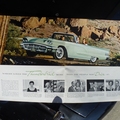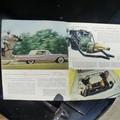UPDATE: Dan's series is complete, the full list of links is here.
Dan at Cerulean Sanctum has a great series going on the value of Christian Community. I think his point is spot on, that community is a very low priority in many, if not most, churches.
He stated in the opening post he said:
The older I get, the more I see that nearly every problem in the American Church today can be traced to our damaged understanding of what it means to be self-less. Everything in our culture screams "Me, Myself, and I." Our government documents assert the "rights of the individual" and we've taken that to the extreme, justifying the rights of the individual over community.For me, his series is especially timely as my church clan is splintering over points of doctrine and practice and even over personality. We would rather be right than whole.
- Kip continues to build his own kingdom (even makling it official), planing new churches along side those he once considered his own. Why? Because they aren't doing church as he would do it. He's toned down his rhetoric on the state of those churches he's abandoning, yet he's calling those who want to do it his way or who value the things he values to his new churches. And those churches are divided.
- In response to Kip's coming to Los Angeles to start a new church (along side the one he founded and once lead), the elders of the LA ICOC church have marked him and those in his new church, warning their members to stay away. They ironically "encourage everyone to work for the same unity for which Jesus prayed within hours of going to the cross" and then call their members respond to the new groups act of separation by separating themselves.
- The folly is not limited to the ICOC, recently at Freed-Hardeman University, an historic meeting took place between the conservative, non-instrumental FU president and the president of Cincinnati Christian University of the instrumental Independent Christian Churches. The purpose of the meeting was to discuss the issues that have divided these two groups for over 100 years. Reading the report of the meeting, what is revealed is two groups entrenched in their positions, neither willing to budge for the sake of fellowship:
Gilmore begged Faust to "lay aside the instrument" for the sake of unity.
Now, the meeting itself was historic, yet I can't help being saddened by two groups who won't lay down their pet practices for the sake of becomeing a community.But Faust said that would require Christian Church members to give up convictions and freedom in Christ.
Division is certainly not a restoration movement only thing, although we've gotten pretty good at it. Last week's The Week Magazine contained an article about the Amish community.. This group, known for it's close knit community and separation from broader society, is evidently subdivided itself.
Since the 19th century, Amish fellowships have divided over the interpretation of Romans 12:2—"Be ye not conformed to this world." In recent years, that has brought splits over the use of mechanized farm equipment and large cooling tanks for milk. At the liberal extreme, the "black bumper" Beachy Amish drive chromeless cars and are rejected as non-Amish by the others. At the conservative end, fellowships disagree violently over the number of pleats there should be in a bonnet, the width of a hat brim, or whether rubber tires should be allowed on buggies. Groups with similar policies are held to be "in fellowship," and they can visit and even marry among one another. But minor disagreements over, say, phones, can create more splinter fellowships.Sound familiar? And how many flavors of Baptist are there? Methodists? Presbyterians? And on and on. We've been slicing up God's church for hundreds of years.
The apostle Paul repeatedly calls the Church Christ's body and in 1 Corinthians 12 he goes into detail on what that means. We are all different for a reason, "so that there should be no division in the body, but that its parts should have equal concern for each other." (1 Corinthians 12:25) But, like some crazed mass murderer with a freezer full of severed hands in one corner, another freezer of feet in the opposite corner, and bins of arms, ears, noses, torsos etc in other places, we have cut the body of Christ into pieces, putting like items in their own boxes. Hands never meet feet, eyes don't see ears. And separated from each other, not only can they not learn from one another, but alone they cannot even do what they were created for. What good is a severed hand?
All of these things make me sad, angry, convicted and determined. I want to do more to champion the cause of unifying God's people and to promote real community in my own church and with churches around us. More so, I refuse to be part of any effort to prevent members of one group of God's church from even meeting with members of another. One thing we in the ICOC did pretty well at one time was become a real community. We felt different than the rest of the world, we were called out, separate, holy. Of course, it was a forced community, built on too much pride, accountability and coercion, but nonetheless, that's what we were. Now, it seems, much of that distinctive camaraderie is dissipating, and continues to do so, at least from where I sit. And we continue to try to recreate it by division and fence building. Will we not learn from our past?
Go read Dan's series (and the articles in between, which have touched on it as well), it's real good. And then go about finding ways of building community in your churches and with the churches around you.




